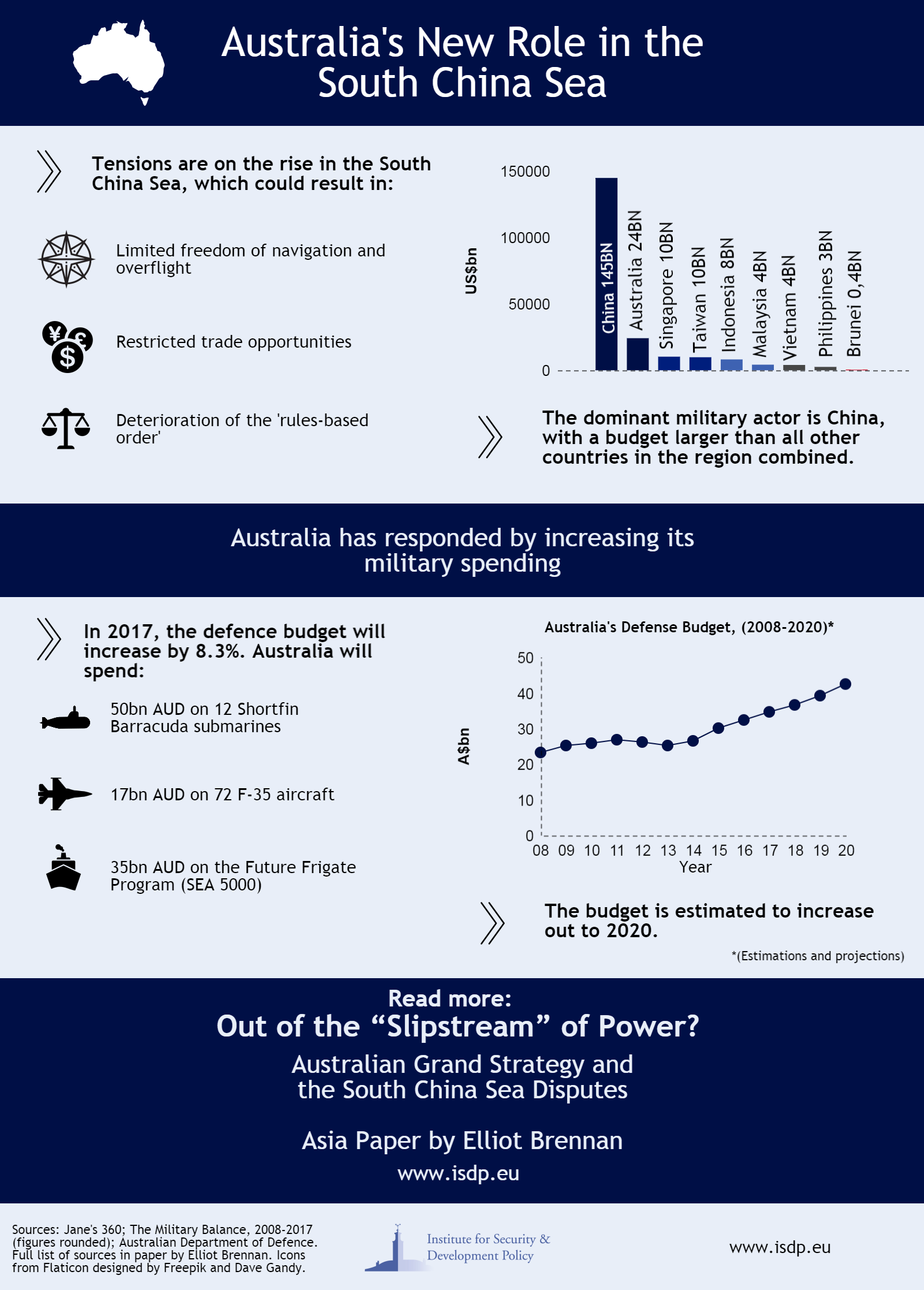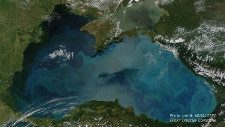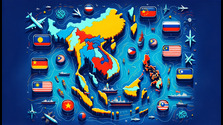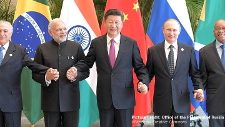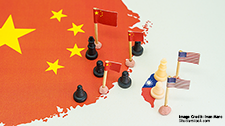Out of the “Slipstream” of Power? Australian Grand Strategy and the South China Sea Disputes
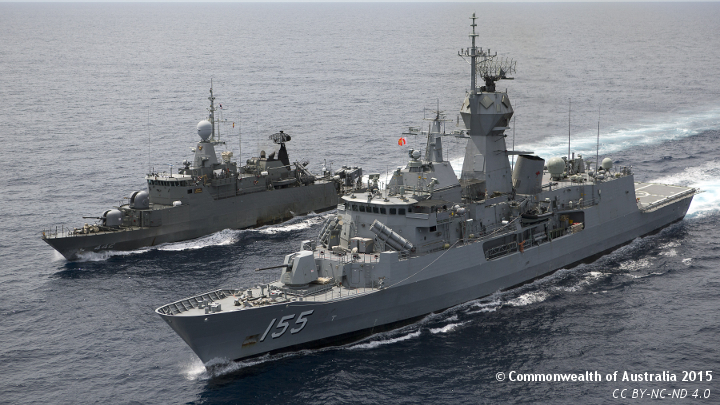
Elliot Brennan
The following Asia Paper examines the continuing debate in Canberra as to how to address changing regional dynamics in Australian foreign policy. It argues that the South China Sea (SCS) disputes are a crucial determinant that will shape Australia’s emerging foreign and economic policy and that the development of a grand strategy, which clearly outlines Australia’s interests in the region, would help improve engagement relationships in the Indo-Pacific.
The changing regional security dynamics necessitate that Canberra re-evaluate and rebalance its relations in the region. Until this is achieved, a muddle-through “hedge and engage strategy” with China will continue; though this strategy is unlikely to support greater confidence in China-Australia relations or U.S.-China relations, and only prompt other countries in the region to conduct similar policy, thereby provoking an entrenchment of the Thucydides trap. The development of a grand strategy would enable greater coherence of Australia’s position and reduce the risk of miscalculation. Supporting the U.S.’ footprint in the Indo-Pacific, through greater force interoperability, improved agility of forces and enabling capability enhancements, particularly in the realm of cyber and space, will be important in lessening the burden on Washington to remain active in the region in the long-term. Under the Trump administration, any Australian government wanting to progress the U.S.-Australia relationship is likely to meet stiffer resistance from a population wary of the new administration’s unorthodox governing style. During this period of change, Australia should deepen and diversify bilateral engagements in the Indo-Pacific and support new and existing multilateral organizations. The recommendations and implications that follow are also highly relevant for other countries in Indo-Pacific region.
Policy Recommendations
- If Australia is to ensure its security in the Asian century, then it needs a deeper and expanded network of alliances and partners in the region. This may include expanding and consolidating its leadership role in the South Pacific and strengthening relations in Southeast Asia.
- If Washington adopts a more isolationist policy, then Canberra will face greater pressure to accelerate defense spending, consolidate regional relationships and be more permissive of Beijing’s expanding influence in the region.
- A strong economy is crucial to meeting Australia’s stated defense spending – both from a purely fiscal point of view and maintaining willingness at a public level. This will require diversifying economic relations and expanding traditional trade relationships to minimize any dependence relationship on China.
- Greater clarity on what would invoke the ANZUS treaty may reduce the risk of miscalculation and support greater contribution by Australia. Where prudent this should be explained to other partners and countries in the region.
- If tensions in the region continue, Australia may elevate the avoidance of conflict in East Asia as a first order priority for its foreign and economic policy.
- The selection of a French defense contractor, ahead of Japan, for the next fleet of Australian submarines should be the beginning of a deepening relationship that supports European countries engagement in the Indo-Pacific.
- Canberra must significantly improve its digital diplomacy efforts, through government, business and wider society, to increase its footprint and influence in the region.
- Canberra must look to hit above its weight and capitalize on events that offer short-term windows for high-impact policy, as was done in its leadership in the MH370 search and rescue mission.
- Australia should deepen its relations with its two largest neighbors, Indonesia and Papua New Guinea. Canberra should double down on future engagements by encouraging relevant language education for young Australians.
- Canberra should increase resources for Chinese-language and cultural studies in schools and businesses.
- While it is not unreasonable for Canberra and other capitals to seek to rejuvenate and strengthen defenses in a period of upheaval, this must be matched by sufficient and regular forums for regional dialogue and cooperation, including increased support and connectivity to track 1.5 dialogues.
- Canberra should support and encourage other interested parties to improve and deepen regional infrastructure such as the EAS, RCEP, and ASEAN. Indeed, these should look to buttress the rules-based system in the region.
- Australia should work with regional partners to strengthen their cyber security capabilities in order to combat next generation and non-traditional threats.
- Canberra should deepen relations with all nations for improved dialogue on issues of mutual concern, including for better cooperation on counter-narcotics, counter-terrorism, disaster preparedness, irregular migration, and rapid response to health emergencies.
- Australia must leverage its emerging gas export boom to support regional growth and development, including, where appropriate, through support for Beijing’s Belt and Road Initiative.
- Australia, both government and companies, should emphasize the importance of freedom of navigation through the SCS for these energy exports to reach their markets.
- The erosion of international norms is a threat to Australia’s security, both economic and otherwise. Canberra must be willing to defend these norms where they are challenged by any and all actors.
